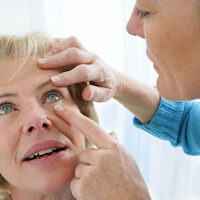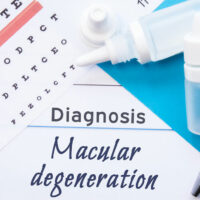6 uncomfortable questions to ask a gynecologist

A trusted gynecologist can help in treating any illnesses and preventing the onset of illnesses by giving the right advice and tips on health. It is important to be honest with your doctor about any illness and symptoms that you may be experiencing that cause discomfort. While some questions may seem embarrassing, it is vital to ask them regardless to help in recovery and understanding the health condition. Here are 6 uncomfortable questions to ask your gynecologist.
What does vaginal discharge indicate?
Vaginal discharge is normal and healthy. A fluid flows out of the vagina daily, and this is the genital’s way of cleansing itself. This is an entirely natural process and is the body’s way of keeping the vagina healthy and bacteria-free. The discharge varies from woman to woman. Usually, the discharge is more when the woman is in her fertile phase, and it is usually milky or white and odorless. This indicates that nothing is wrong.
If the discharge is too thick and white and is followed by other symptoms like vaginal itching, soreness, burning, or even pain, this could indicate a yeast infection. Sometimes if the discharge is yellow or gray and is followed by symptoms like fishy odor, vaginal swelling, and itching, it could indicate bacterial infection. There is no shame in speaking to a gynecologist about these symptoms, as they can only provide proper treatment once they have all the information.
Does my vulva look normal?
It is extremely normal to be curious about the vulva. Questions like is it too big, too small, or too dark are expected. The right answer is that the vulva is different in every female, and hence there is no right kind of vulva. Until and unless an individual experiences any symptoms that point to an illness, the vulva is just as it is supposed to be and healthy. A gynecologist will help you understand that your body is fine just the way it is and will help you recognize any symptoms that may point to an illness.
Is it necessary to shave pubic hair before a doctor’s visit?
This is also another common concern. The right answer is to do whatever makes you feel comfortable. A gynecologist is not meant to judge your genitals by the pubic hair. In fact, pubic hair is essential to keep bad bacteria away and protect the vulva from any friction, including during sex. So, pubic hair is an important part of the genitals. Gynecologists do not recommend waxing pubic hair as that can be painful, harsh, and unnecessary. A good gynecologist will never shame their patient about pubic hair.
Why am I no longer interested in sex?
This is a common problem, especially for women who are hitting menopause. The estrogen levels usually drop during this time, which means there is a hormonal imbalance in the body. Because of this imbalance, the vagina also starts to get dry. The intercourse can get uncomfortable and painful when the vagina is dry. This unpleasant experience may make some women resistant to having sexual intercourse. Apart from this hormonal imbalance, there are other factors like physical or mental stress or even lack of exercise that affect the libido. In some people, illnesses like sexual dysfunction can also be a contributing factor, and that is why it is important to speak to a gynecologist to understand the causes of this decreased libido. The doctor can suggest the right treatment or remedies to help.
Is it normal to get painful periods?
While cramping and abdominal pain during the periods can seem normal, it is not always supposed to be painful. There is a lot happening inside the body during this time, and cramping may occur due to the contraction of muscles, but if it is getting worse or too painful to bear, then a gynecologist needs to take a deeper look. Do not hesitate to speak to the gynecologist and explain all the symptoms. Pain is the body’s way of communicating that there is something wrong that needs to be addressed. Many people ignore this pain and are unable to diagnose illnesses like PCOD, PCOS, or endometriosis until a much later stage.
In endometriosis, the pain is excruciating, and in some women, they even feel dizzy and disoriented due to the pain. Many ignore this symptom thinking it is normal period pain, but a diagnosis can help prevent it and administer treatments that can help. PCOS and PCOD are also illnesses arising from hormonal imbalances, so ensuring the hormones work fine is important. An annual body check should help determine the health statistics to help keep you on track.
For those with a painful and irregular menstrual cycle, tracking ovulation days may help monitor changes in the body. To achieve this, you may be required to urinate on a test stick or place the test stick in a sterile container with fresh urine. Alternatively, it is possible to track ovulation by recording basal body temperature (BBT), which rises after ovulation as a result of the thermogenic effect of progesterone.
Why am I unable to reach an orgasm?
This may be more common than you think, and the way a gynecologist can help is to make you understand the sexual organs better and their functions. A trusted gynecologist will not make you feel embarrassed about this and help you and your partner understand these organs better. Your partner will be able to help you with sexual exploration; however, if you are still unable to reach an orgasm, the doctor may suggest a test for diagnosing anorgasmia. This is a form of sexual dysfunction in which it becomes difficult for anyone to reach orgasm even though they may enjoy sex with their partner thoroughly. There can be some remedies and treatment plans that can help treat this condition, but only a gynecologist may be able to help and even suggest any other doctors who may help in this treatment.
It is important to know that speaking to a doctor should never be embarrassing because a professional will examine the facts and provide solutions without judging your condition. So choose your doctors wisely to help treat and prevent illnesses.





